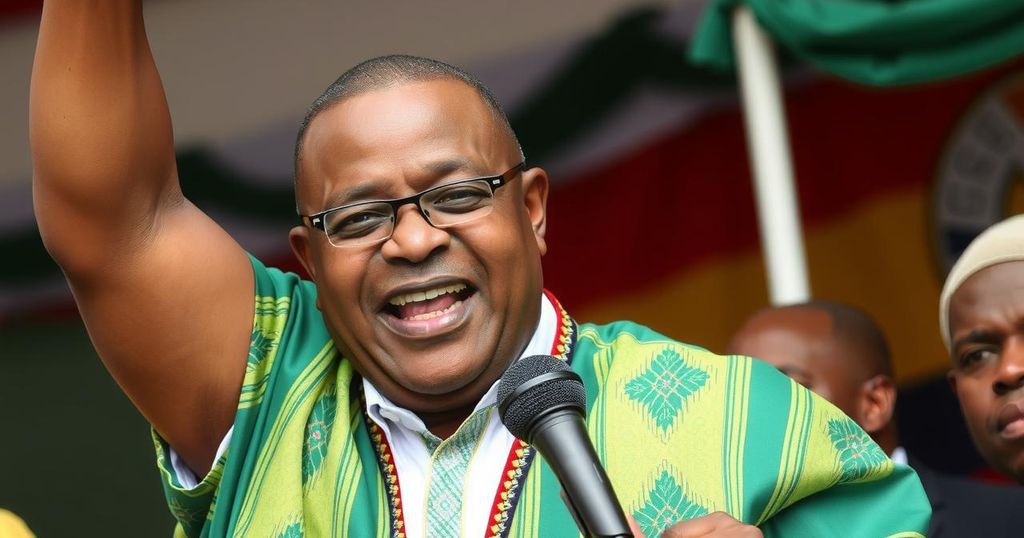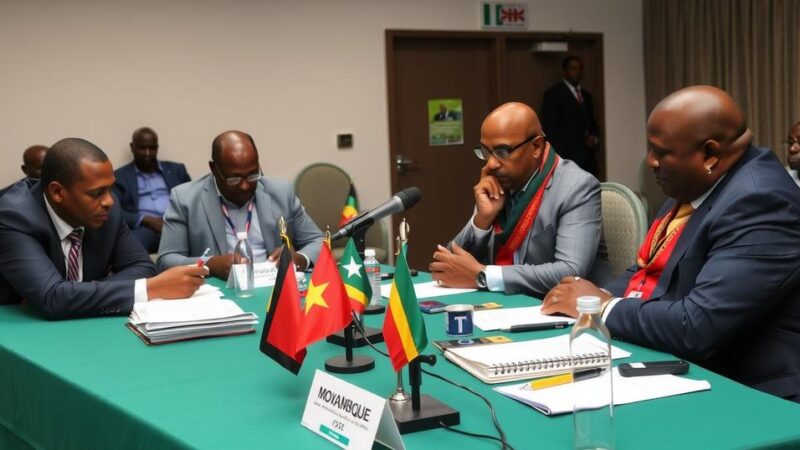Former President John Mahama of Ghana has won the presidential election, defeating Vice President Mahamudu Bawumia and the New Patriotic Party amid widespread economic dissatisfaction. Bawumia conceded, acknowledging the electorate’s call for change following an election marked by issues of inflation and economic crisis. Mahama’s victory restores his position after previous losses and reflects significant public discontent with the ruling party’s economic management.
Ghana’s former President John Dramani Mahama has achieved a significant electoral victory in a recent presidential election, marking his return to power amidst economic discontent. The ruling New Patriotic Party (NPP), led by Vice President Mahamudu Bawumia, faced backlash from voters due to the poor management of the nation’s economic crisis, which featured soaring inflation and a severe debt default.
Bawumia conceded defeat following the Saturday election, acknowledging the electorate’s desire for change. This election concluded eight years of governance by the NPP and President Nana Akufo-Addo, who oversaw considerable economic turmoil. Mahama, who previously served from 2012 to 2017, prevailed after unsuccessful bids in 2016 and 2020. Amid celebratory scenes outside the National Democratic Congress (NDC) headquarters in Accra, Mahama has confirmed receipt of Bawumia’s congratulatory call regarding his decisive victory.
The economic landscape significantly influenced the election outcome, as Ghanaians grappled with the aftereffects of high living costs and currency devaluations, leading to a $3 billion IMF bailout. Preliminary data from the NDC suggested that Mahama garnered 56.3% of the vote compared to Bawumia’s 41.3%. Political observers noted that unofficial tallies were conducted by representatives from both parties at polling stations before official results began to be compiled.
The election marks a pivotal moment in Ghana’s political history, characterized by a tradition of democratic transitions between the NPP and NDC since 1992. Despite Bawumia’s campaign motto of “Break the 8,” aimed at securing an unprecedented third consecutive term, he fell short amid criticism of the existing government’s economic performance. Although inflation rates improved from over 50% to around 23%, economic difficulties remained a pressing issue for many voters, facilitating Mahama’s resurgence as a viable candidate. Nonetheless, Mahama also faced scrutiny during his campaign as memories of his previous administration’s economic challenges lingered, particularly the substantial power outages that plagued his term.
The recent election in Ghana emerged against a backdrop of significant economic instability, with the NPP’s governance marked by soaring inflation and serious fiscal challenges, attracting widespread public ire. Historically, Ghana has maintained a stable democracy, with power typically alternating between the two leading parties since the reinstatement of multiparty politics in 1992. Mahama’s victory illustrates a pivotal shift in public sentiment, largely shaped by dissatisfaction with the incumbent administration’s performance and the pressing economic circumstances facing the nation.
In conclusion, John Dramani Mahama’s victory in Ghana’s latest presidential election represents both a significant political re-alignment and a response to widespread economic grievances. With the NPP’s eight years in power concluding, Mahama’s return reflects the electorate’s desire for change amid persistent economic challenges. His victory not only underscores the public’s frustration with inflation and economic instability but also highlights the political volatility that can arise from economic discontent in democratic governance.
Original Source: www.theguardian.com







